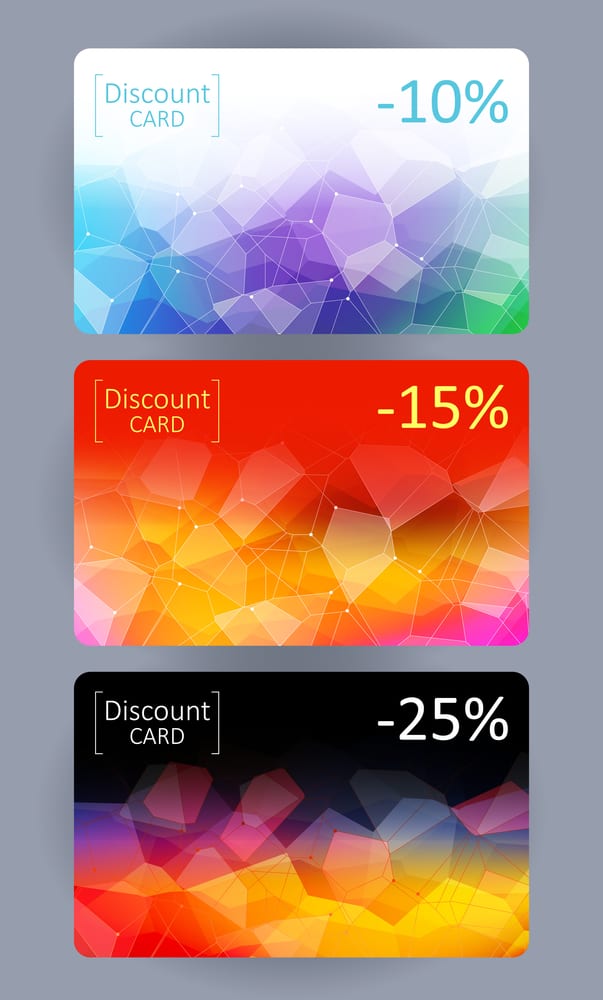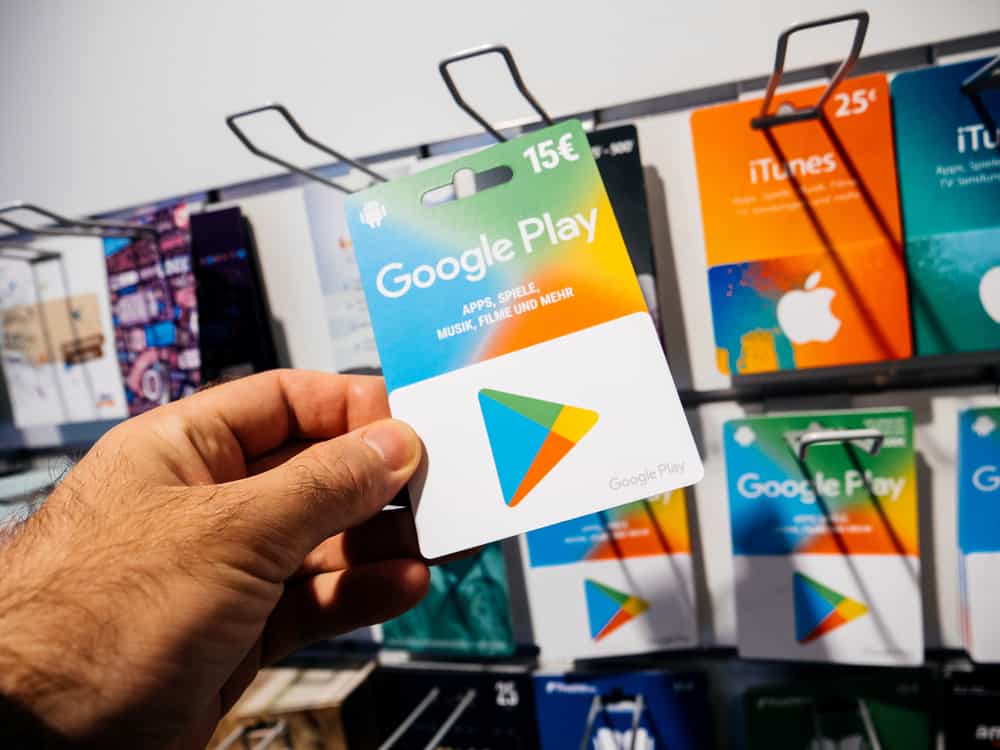Gift cards and certificates are a favorite holiday or birthday gift for many people who want their loved ones to choose exactly the gift they want. Gift cards are high on the list of requested gifts, but many people forget to use them or never use the full amount.
In addition, people don’t realize they can use gift cards to budget for everyday expenses. Using these fixed-amount cards can benefit shoppers who tend to spend money in the wrong places when using cash or overspend when using credit cards.

Photo: Deposit Photos
Whether you’re buying or receiving gift cards from department stores, restaurants, coffee shops or other retailers and service providers, employ these strategies for making the most of your gift cards and saving money.
Use your gift cards – don’t waste them
According to a survey from creditcards.com, almost half of all adults have an unused gift card. Who wants to waste perfectly spendable money?
The best way to safeguard against wasting money with gift cards is to spend them quickly. An unused gift card is the equivalent of cash, but unlike cash it can expire if you forget about it. In addition, the vendor could go out of business, or you could simply lose the card. In any case, the longer you wait to spend it, the less value you’re likely to get for the card, as prices climb over time and some gift cards lose value after they sit unused for awhile.
Follow these tips to avoid wasting the gift cards you’ve purchased or gotten as a present.
Store your cards in one place. You can’t use what you can’t find. Create a designated box or file for physical gift cards or printouts, or put them in a special wallet in your purse. If you’ve got digital gift cards in your email inbox, create a specific folder to store them. That way, you always know where to find them when you’re ready to shop. Check your gift card collection monthly to remind yourself what you haven’t spent.
Check expiration dates. After you’ve located all your gift cards, check their expiration dates. The same goes for gift certificates and vouchers from daily deal sites like Groupon. Log into your daily deal site account, see which deals you’ve purchased and their expiration dates, and then plan ahead, especially for any dining deals, visits to attractions or getaway breaks. Put the expiration dates on your calendar and set a reminder several weeks ahead of time. Then you’re not left trying to use them at the last minute, when it may not be so convenient for you and your family.
Use what you paid. If you have an unused and expired daily deal site certificate, note that some keep their purchase value even after the official expiration date. For example, if it’s a half-price restaurant deal, and you’ve paid $10 for $20 worth of dining, even after the use-by date, you may be able to use the certificate for the original $10 that you paid. Check the fine print.
Regift. Finally, if you’re unlikely to use the gift card because you don’t like the restaurant, venue or retailer, think about regifting it to someone else, doing a gift card swap with friends, or selling or bartering it on a neighborhood buy/swap group or an online site that buys gift cards.
Best bet? Spend your gift cards. It’s a classic case of use it or lose it.

Tips to use gift cards for budgeting and stretching your dollars
Don’t think you can only purchase gift cards to give to others as presents. You can use them for your own benefit. With a gift card, you are locked into a designated spending amount, which guards against impulse buys or shopping elsewhere when you shouldn’t. Plus, gift card discount and cash-back sites, as well as bonus offers, can make your dollars go further when purchasing the cards; just be sure to buy no-fee gift cards.
Follow this advice to use gift cards to stick to your budget.
Take a look at your current budget. Determine how much to spend for the month on variable expenses like groceries, personal care items, gas, entertainment, etc. Decide how often you want to purchase the amount allotted in gift cards. You might want to start biweekly and see how it goes. You can tweak the frequency if you find that you’d rather purchase the cards less often. Experiment to figure out a pacing that works best for you.
Purchase gift cards to stores you shop regularly. Purchase the cards in advance to match your budget categories. Start with one area at a time. This will help stabilize your spending and help you budget more efficiently.
No matter how much you purchase in advance, spend the amount allotted per week. So if you normally spend $600 a month on groceries, make sure you only spend $150 per week in a month with four weeks. Purchase multiple gift cards in your weekly budgeted amount, rather than one large one to use across the month, so you’re less tempted to overspend just a little each week.
Be aware that some months are longer than others and plan accordingly. You’ll have to spend less per week if the month is longer.
Physical cards, as opposed to be digital certificates, can be a useful tool to block you from overspending on a credit card. They can serve as a visual reminder in your wallet, so you reach for the prepaid card rather than your credit cards.
Keep track of the balance. Avoid unused balances on the gift cards by attaching the receipt to the card or putting the card back in a business card holder with the receipt. My daughter writes the amount on the back of the card in permanent marker to remember the balance.
No matter what you decide, it will help you remember what you have left on the card. You can also budget digitally. You just have to remember your target number of what you can spend.
Make your dollars go further. If you’re looking to not only stay within your limits but stretch the allotted amount in your categories a bit, challenge yourself to come under the gift card amount. Start by shaving off small amounts of money like $5 or so. Maybe put back items that you don’t truly have to buy this trip to free up cash in your budget. If you find that you can stick to the new lower limit, you can reload a smaller amount of money and use the extra money in your budget for savings or getting out of debt.
Take advantage of bonus offers. Around the holidays, many restaurants and retailers offer gift card bonuses. For example, if you pay $50 for a $50 gift card, you’ll get a bonus $10 gift card free. Target is well known for its pre-Christmas gift card bonus sale. If your budget allows, stock up on a few of these to get more for your money, or buy the gift cards for someone else, but keep the bonus for yourself.

Look for gift cards from other retailers with the same parent company. Say you wanted to buy furniture from Pottery Barn using a gift card, and Raise.com offered Pottery Barn gift cards at a 2.2% discount. However, you can also use West Elm or Williams Sonoma gift cards at Pottery Barn, and those gift cards are discounted up to 4.4% or 4.7%, respectively. You’ll get a better deal using the sister company’s gift card, which most people don’t think to do. Take some time to research sister or parent companies and their policies regarding using other cards at their brick and mortar stores as a means of saving money.
Take baby steps. Start small with one area of your budget, like the grocery store. This way you can experiment with a routine that works well for you and your habits. Once you get a process down, you can apply the same steps to another store like pharmacies you frequent or big box stores like Walmart.
Beware of scams
Online marketplaces allow you to resell unwanted gift cards and get money you can spend wherever you want. Budget-conscious customers can then buy other people’s gift cards to retailers for less than the face value of that gift card. But the gift card resale market has its share of scammers.
Here are some strategies to avoid getting scammed.
Shop from places that offer buyer protection. Avoid buying a gift card from an individual. Buy gift cards through marketplaces that offer buyer protections, and check online reviews of these resale sites.
Use the gift card within the guarantee period. Treat gift cards like cash. Use them as soon as possible before the card gets lost or the business goes bust.
Don’t combine gift card balances. A few years ago, Starbucks deactivated a gift card I’d purchased from Cardpool (which is no longer in business) and only gave a vague explanation. My guess is the card had been purchased with a stolen credit card. Unfortunately, I’d already transferred the balance to my existing Starbucks account balance, which Starbucks also froze. I was eventually able to get my own Starbucks funds restored, and Cardpool fixed the issue with their card after I contacted customer service. But things would have been a lot easier if I hadn’t combined gift card balances.
Check for signs of tampering. Sometimes warehouse clubs sell discounted gift cards, or other retailers might offer gift card promotions around the holidays. If you’re buying a physical gift card in store, make sure that it doesn’t show any signs of tampering. If the cardboard is ripped or the PIN has been scratched off, don’t buy it! These could be signs that a scammer has written down the gift card code. If that’s the case, they can use it online after the card gets activated at the register.
But don’t get discouraged. The majority of gift card purchases happen without a hitch, and customers have saved money by finding discounts on gift cards.
If you liked this article, you may also enjoy:
- Maximize those gift cards
- 5 apps that save you money on everyday shopping
- How to save on shopping using credit card perks
- Make extra cash during the holidays
- Save money and time over the holidays
- Make your own holiday gift bags
- Ways to deal with your post-holiday financial hangover
